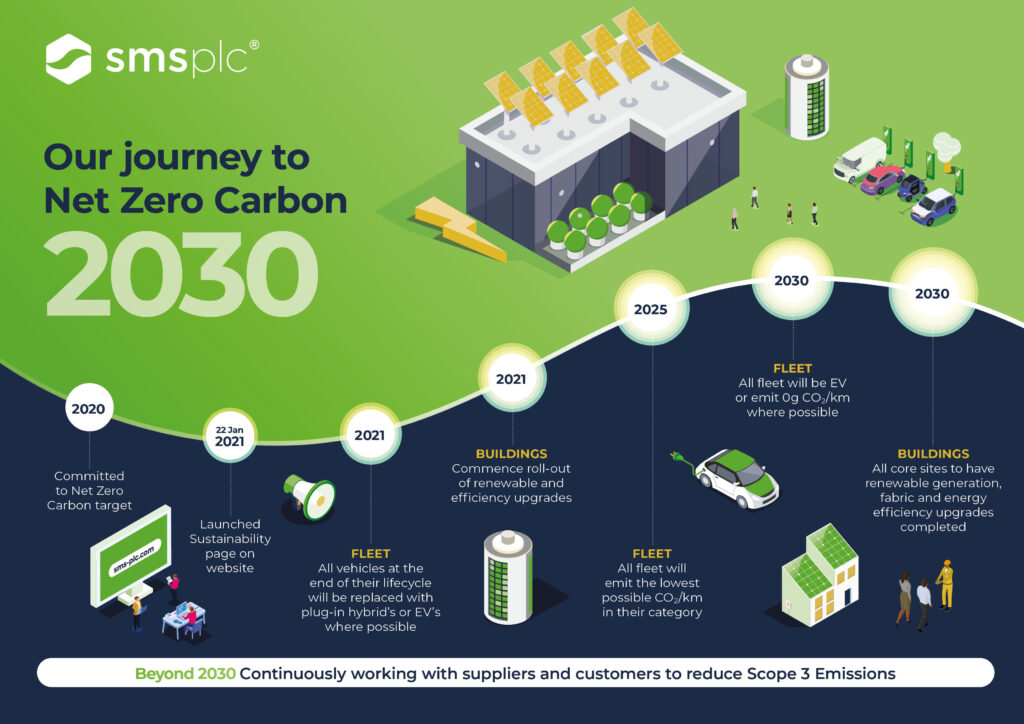Smart meter company SMS will adopt on-site renewable generation and battery storage, as it works towards its 2030 net zero carbon target.
In the company’s roadmap, it sets out a number of steps to help it become carbon neutral by the end of the decade. This includes transitioning its nationwide fleet to electric vehicles (EVs) as well as rolling out renewable generation at the Group’s UK and Ireland estate.
SMS laid out its Carbon Roadmap as:
- 2021 – All internal combustion engine (ICE) vehicles at the end of their lifecycle replaced with plug-in hybrid electric vehicles (PHEV) or pure EV where possible.
- 2021 – Commence rollout of renewable energy installations and efficiency upgrades at key buildings.
- 2025 – All domestic fleet will have transitioned to PHEV and EV or adhere to maximum of 60g CO2/km per vehicle.
- 2030 – All domestic and commercial fleet to have transitioned to EV and will emit 0g CO2/km.
- 2030 – All remaining core sites to have renewable generation, fabric and energy efficiency upgrades completed.
- >2030 – SMS to become a carbon negative business through reducing Scope 3 carbon emissions across its entire value chain.
The shift will allow the company to further address the urgency of tackling climate change said Alan Foy, CEO of SMS.
“Our long-term ambition, however, does not end there. On reaching this net zero goal at the end of the decade, our aim is to thereafter become a carbon negative business by targeting Scope 3 carbon reductions across our entire value chain.”
SMS’s work rolling out smart meters helped mitigate more than 15,000 tonnes of carbon emissions in 2020 alone, the company added.
“For more than two decades, SMS has played a pivotal role in the ongoing transformation of the UK’s energy system through our services, including the installation of smart meters and our longstanding energy and carbon reduction solutions,” said Foy.
In March 2020, SMS also entered the Virtual Power Plant sector through its acquisition of energy start-up Solo Energy.





